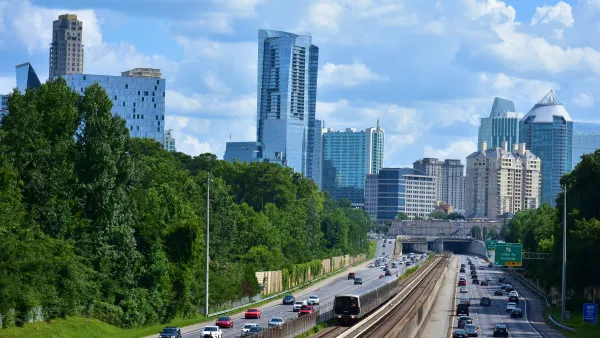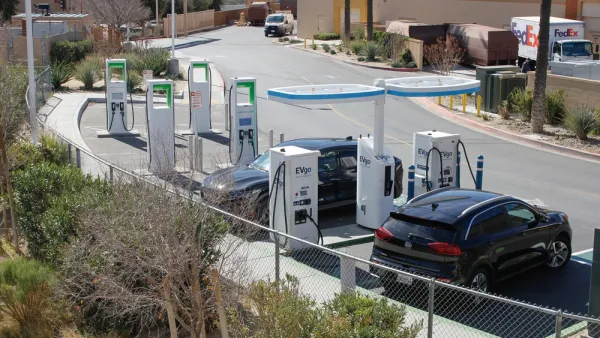As the Highway Trust Fund goes bankrupt, the editors of Bloomberg suggest new ways to finance transportation infrastructure that integrates new technology, increasing public-private associations and loosening the funding framework itself.
The central weakness exposed by the conflicting proposals from the White House, the Senate, and the House to finance transportation infrastructure is identified by the Editors as each plan's reliance on unsustainable short-term funding sources. This weakness is, of course, caused by the imminent demise of the Highway Trust Fund.
According to the editors, "The reason everyone is resorting to such sophistry is that the Highway Trust Fund, which gets the bulk of its revenue from a federal excise tax on gasoline of 18.4 cents per gallon, is nearly bankrupt. Because the tax isn't adjusted for inflation, and has been pegged at the same rate since 1993, it has covered less and less of U.S. transportation spending."
As a response to the politically untenable proposition of raising the gas tax, the editors propose new funding approaches to take the place of the Highway Trust Fund. "One promising future replacement for the gas tax is a 'vehicle miles-traveled fee,' which would use satellite tracking or a variety of other methods to charge drivers by mileage, regardless of the fuel they use."
Another avenue identified is, "more and better public-private partnerships for construction projects," based on the success of the much lauded Transportation Infrastructure Finance and Innovation Act (or TIFIA).
Lastly, the editors suggest that the structure of transportation funding could use an update to reduce bureaucracy and allow states more control over federal funding use.
FULL STORY: With Gas Tax on Empty U.S. Must Find New Way to Fund Roads

National Parks Layoffs Will Cause Communities to Lose Billions
Thousands of essential park workers were laid off this week, just before the busy spring break season.

Retro-silient?: America’s First “Eco-burb,” The Woodlands Turns 50
A master-planned community north of Houston offers lessons on green infrastructure and resilient design, but falls short of its founder’s lofty affordability and walkability goals.

Delivering for America Plan Will Downgrade Mail Service in at Least 49.5 Percent of Zip Codes
Republican and Democrat lawmakers criticize the plan for its disproportionate negative impact on rural communities.

Test News Post 1
This is a summary

Test News Headline 46
Test for the image on the front page.

Balancing Bombs and Butterflies: How the National Guard Protects a Rare Species
The National Guard at Fort Indiantown Gap uses GIS technology and land management strategies to balance military training with conservation efforts, ensuring the survival of the rare eastern regal fritillary butterfly.
Urban Design for Planners 1: Software Tools
This six-course series explores essential urban design concepts using open source software and equips planners with the tools they need to participate fully in the urban design process.
Planning for Universal Design
Learn the tools for implementing Universal Design in planning regulations.
EMC Planning Group, Inc.
Planetizen
Planetizen
Mpact (formerly Rail~Volution)
Great Falls Development Authority, Inc.
HUDs Office of Policy Development and Research
NYU Wagner Graduate School of Public Service





























